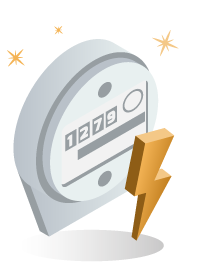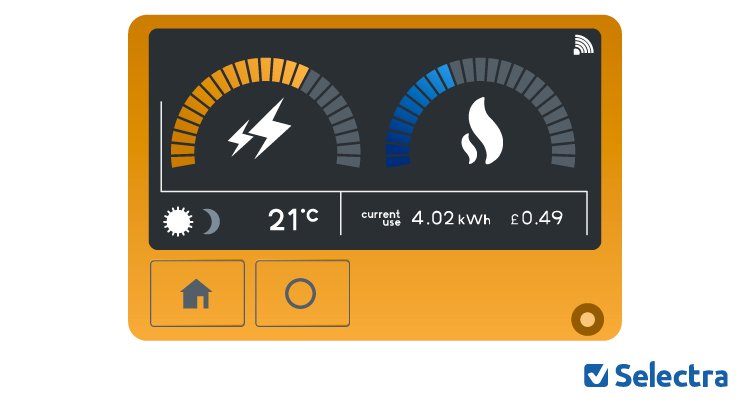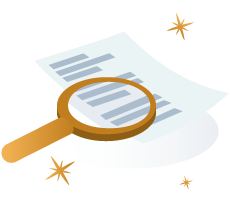What is a Smart Meter and How Do They Work?

Smart meters allow you to monitor your energy consumption in real-time. By wirelessly sending your gas and electricity usage directly to your supplier, installing a smart meter means no more meter readings and no more estimated bills.
What is a smart meter?

A smart meter is a new type of gas and electricity meter that provides up-to-date and accurate information on how much energy you use. The latest generation of smart meters are known by their model number, SMETS2.
As with traditional energy meters, smart meters measure gas and electricity usage. However, smart meters use technology to automatically send updates on your consumption information to energy suppliers, thus eliminating the need for estimated bills and regular meter readings.
Smart meters work in tandem with an in-home display (IHD) to show the amount of energy being used in real-time, as well as how much it is costing.
How do smart meters work?
Smart meters act as direct replacements for standard gas and electricity meters. Upon installation you will receive:
- One meter eachfor gas and electricity to replace your existing ones.
- An easy to read in-home display, which allows you to see your energy consumption and cost from wherever you wish in the home.
When your smart meter is installed, the installation engineer will ensure the correct setup and configuration of your new meters. You will then begin to see real-time data appear on your in-home display.
Your new meters will most likely be placed where your old ones were.
Smart meters use wireless networks to communicate your energy consumption information directly to your provider. In theory, you should never have to observe or take a meter reading again and only pay for your actual energy costs rather than receive estimated bills.
Smart meter appsMany suppliers offer mobile apps for customers with smart meters. Users can keep an eye on their energy consumption and cost remotely while prepayment customers can top-up using the app instead of having to go to a PayPoint or Post Office.
How do smart meters communicate?
Smart meters do not rely on a home wifi internet connection to work. Instead, they use the smart meter Home Area Network (HAN) and the Wide Area Network (WAN) to communicate with each other and the IHD.
Electricity smart meters are usually connected to the mains via a wall socket and monitor energy usage in real-time. Gas smart meters are often battery-operated and programmed to take a reading every half hour and communicate this via your electricity meter.
Electricity smart meters are linked to a communications hub that allows it to send energy consumption data to the Data and Communications Company. This information is then sent on to your supplier and energy network.
While your energy supplier uses this information to accurately bill your gas and electricity costs, your energy network can use it to improve their own systems and service.
How to read your smart meter
Smart meters eliminate the need to take readings for your supplier to then bill you based on that information. Instead, your in-home display can help you to curb your energy usage by making you aware of how much you are really using.
Knowing exactly how much you are spending can stop you worrying about turning any of your appliances on and put you back in control of your monthly spend.

Above, you can see a typical in-house display. Although each energy supplier has its own design, the basics remain the same. The above example is using a predetermined budget. It then denotes the amount in pounds and pence that you have spent within the day. You can also change this setting to display other time frames, such as your billing month.
What are the benefits?
For many in Britain, energy bills are a huge issue. The number of people living in fuel poverty is growing and smart meters are helping millions of households across the country stay in control.
Here are some of the benefits that come with having a smart meter:
- You know how much energy your consuming in near real-time.
- By knowing how much you consume, you can make informed decisions on how to cut back on your consumption and, therefore, your energy bills.
- They eliminate the need for estimated bills and the need to submit meter readings. All bills will be completely accurate and up to date.
- Smart meters work with smart grid technology to enhance the energy management features of home battery walls and solar panels. With network infrastructure moving towards increased automation, smart meters could play a big role in our future.
How to get a smart meter
Getting your smart meter is a simple process, though it's not the same for everyone. Each individual supplier has its own smart meter design and fitting process.
Some energy providers will have an option to book your smart meter fitting online. However, the quickest way to get sorted is by giving your supplier a call to see if they are offering smart meters in your area yet.
Smart meters are suitable for most homes, though there has been a delay in their rollout in rural areas, high-rise buildings and homes with thick walls, as a weak signal means devices are unable to communicate effectively.
How much does it cost?
Although suppliers will often tell you that smart meter installation is free or there are no upfront costs, the overall smart meter rollout cost is expected to be recouped through energy bills.
Can I get a smart meter if I’m renting?
If you’re paying the energy bills directly to the supplier, rather than the landlord, you should be able to have a smart meter installed. However, you should always check the fine print of your tenancy agreement first and inform the property owner. If the landlord takes care of utility bills, it is up to them to install a smart meter or not.
What happens if you switch supplier?
What happens if you have a smart meter installed by one energy provider and then decide to switch to another supplier? Simply put, nothing. You are protected by energy watchdog Ofgem’s rules and regulations. Smart meters must be installed on a non-commitment basis. If you wish to switch thereafter you are free to do so as you would before.
If you switch to a supplier that does not support your smart meter, your smart meter will go into what is known as ‘dumb mode’, which is much the same as how your old meter would have worked. Your in-house display will still be operational - the only difference is that it will not calculate your usage into pounds and pence. Instead, you will just see it in kilowatt-hours (kWh).
Are smart meters compulsory?

Ofgem, the energy supply regulator, has unequivocally stated that smart meters are not compulsory, which means you are within your rights to refuse one.
The UK government has changed what was once a hard deadline to get all households in line to more of a goal. This softening in smart meter policy is good news for those who don’t want smart meters in their homes.

